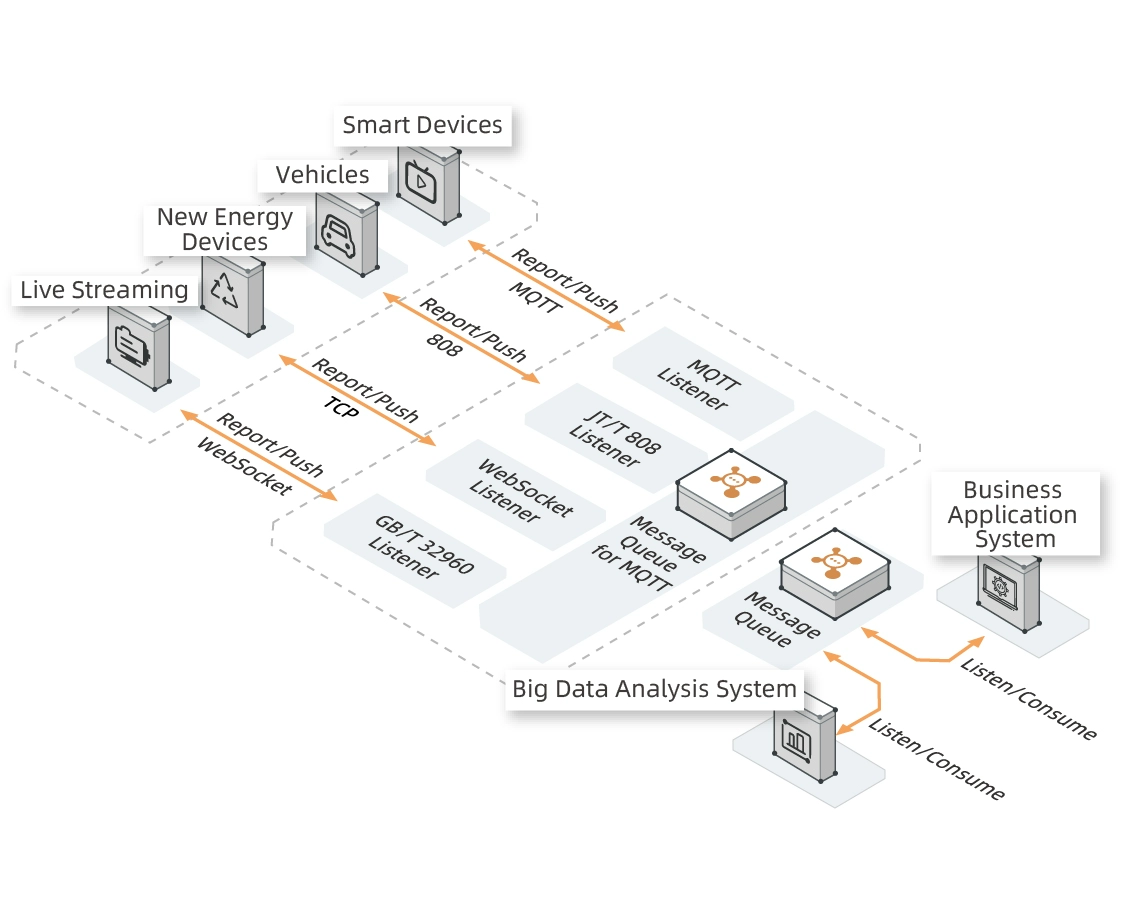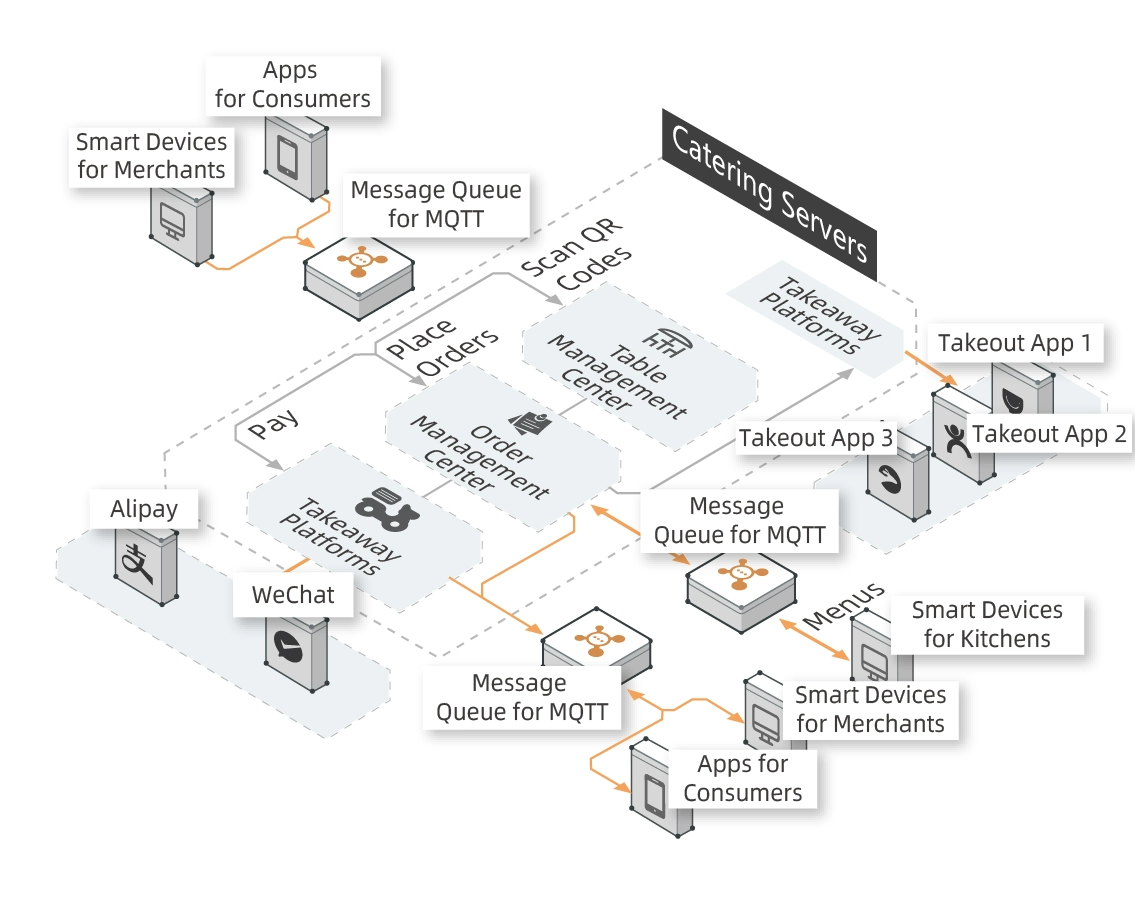ApsaraMQ for MQTT は、IoT およびモバイルインターネットに特化されたメッセージサービスです。 ライブストリーミング、金融決済、スマートケータリング、インスタントメッセージング、携帯アプリ、スマートデバイス、IoV (車両インターネット) など、様々なシナリオに適用できます。 Message Queue for MQTT は、MQTT および WebSocket など、複数のプロトコルをサポートし、デバイスとクラウド間の双方向通信が可能です。 C2C、C2B、B2C など、複数のビジネスモデル間でメッセージを交換し、すべてをインターネットで接続できます。
ソリューションの特徴

オープンソースプロトコル
MQTT、WebSockeをサポート。
特徴
標準 IoT プロトコル
オープンソースで使いやすいプロトコルで、複数のプラットフォームに対応しており、すべてのモバイルインターネットやIoT機器の接続に使用することができます。
Pub/Sub
Pub/Sub モデルをサポートし、1 対多のメッセージ配信を実行します。
P2P
P2P モデルをサポートし、効率的で費用対効果の高い ポイント間のメッセージ配信を実行します。
低消費
オーバーヘッドが小さく、最小限のプロトコル交換で行う軽量のデータ送信をサポートし、ネットワークトラフィックを最小化します。
3 種類の QoS レベル
ビジネスシナリオに基づいて、メッセージ配信に 3 種類の QoS レベルを適用できます。
最大で 1 回配信
一部のメッセージが失われることを許可します。
メッセージは最大で 1 回だけ送信されます。
少なくとも 1 回配信
すべてのメッセージが受信されることを保証します。 配信の重複を許可します。
1 回のみ配信
メッセージの重複または欠落が発生しません。
強力な O&M 機能
強力、便利、かつ使いやすい O&M ツールで、問題を迅速に特定して対処できます。
統計レポート
デバイスに対するクエリ、オンラインデバイスのグループ化と管理、メッセージの送受信に関する統計情報の表示が可能です。
モニタリングとアラート
オンライン接続、保持されたメッセージ数、配信の遅延をリアルタイムでモニタリングすることにより、問題の原因を特定できます。
RESTful API
RESTful API を使用して、リソース管理および保守機能を柔軟かつ容易にカスタマイズできます。












